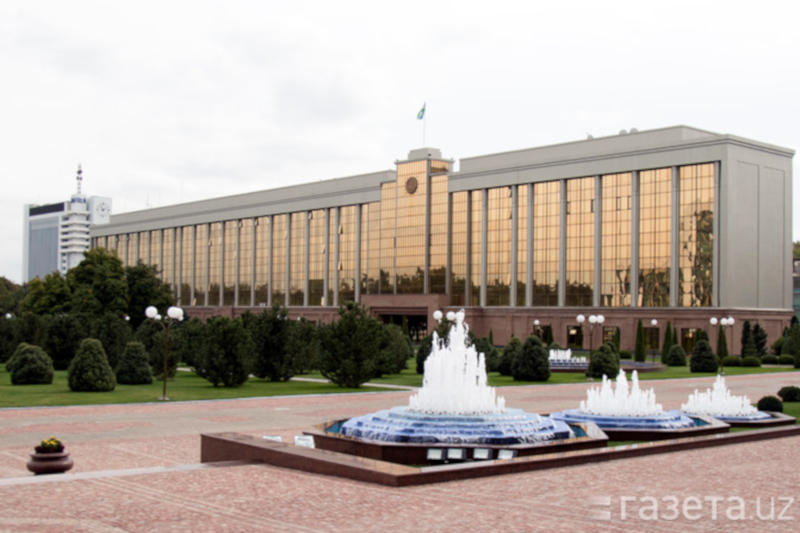TASHKENT
Uzbekistan has put several state-owned properties, including the former headquarters of the local KGB building, up for sale. After the collapse of the USSR, it served as the HQ of the Uzbekistan Service for National Security (SNB). That organ moved to a new building over a year ago.
The once-feared, huge four-storey building in the city centre is expected to be turned into a shopping mall, an entertainment venue, or an office building, Uzbekistan’s State Assets management Agency (UzSAMA) said.
Another building on the block is a former Soviet-era publishing house which issued all local and national Soviet dailies.
Last week, Uzbekistan appointed internationals Deloitte, Grant Thornton, and KPMG to advise UzSAMA on the sale of 18 state-owned enterprises, and to ensure transparency in the privatisation process.
The Central Asian country is making efforts to improve its investment climate after more than two decades of economic isolation. The closed, autarkic system viewed most foreign investments as a threat. That ended when Islam Karimov, who had led Uzbekistan since before the Soviet breakup, died in 2016.
Now-President Shavkat Mirziyoyev, who was once a prime minister under Karimov, has made attracting foreign investors one of his top priorities in an increasingly ambitious plan to open Uzbekistan to the outside world.
The list of companies to be sold off also includes the country’s largest insurance company, Kafolat.
There is also a top glass producer, as well as the Ferghana Oil Refinery, Uzbekistan’s second largest. A chemical plant and ten wine and spirits producers are others on the list.
UzAssets said it had already attracted 86 proposals from 17 international firms – from the United Kingdom, the Netherlands, the United States, Russia, China, and Kazakhstan.
Separately, last month UzSAMA put several major state-owned real estate assets up for sale, offering them to domestic and foreign investors.
Interested parties have also been invited to submit bids for five commercial properties in the capital Tashkent: A business centre, a hotel complex, a large retail mega-outlet, and two downtown buildings.
Three mountain resort complexes outside the capital are also marked for the chopping bloc.
One such edifice of mountain idyll used to belong to Gulnara Karimova, the eldest daughter of the former president Islam Karimov.
Popularly known among Uzbeks as “Googoosha”, she was placed under house arrest in 2014 – even when her father was still in power. In 2020, she was moved from house arrest to prison for violating the terms of her parole – including use of the internet, telephone communications and leaving her residence without permission. In addition to this five-year prison term for the violations of her house arrest, she was sentenced to another nine years on new convictions of embezzlement and extortion. She denies the charges.
Bids on the properties are due by 6 p.m. on April 30 and require a five percent down-payment.
President Mirziyoyev issued a decree in October 2020 ordering the full or partial privatisation of over 620 state-owned companies and properties.
The list includes state companies in energy, mining, chemical sectors, as well as Uzbekistan Airways and Uzbekistan Railways.
As well as offering state assets for sale, Uzbekistan has also sought to improve its investment climate and restore foreign investors’ trust by setting up a special legal panel for investment and competition issues.
The country’s reform drive has not gone unnoticed. The World Bank has rapidly scaled up support to Uzbekistan, with 21 projects totaling around $3.5 billion – the second largest World Bank programme in the Europe and Central Asia region. The European Bank for Reconstruction and Development (EBRD) re-engaged with Uzbekistan in September 2018 after a long hiatus, raising its portfolio to 1.8 billion Euros.
In June of 2019, the Asian Development Bank approved a new country partnership strategy aligned with Uzbekistan’s national development strategy and allocated a cumulative $4.83 billion for loan disbursement.
Foreign Direct Investment (FDI) in Uzbekistan quadrupled from just over $600 million in 1998 to $2.4 billion in 2020.
The country has also advanced in the World Bank’s “ease of doing business” rankings. It jumped to No.69 from No.87 previously. In the Economic Freedom ranking by the Heritage Foundation, Uzbekistan scored 57.2 points, up from 46 and elevated from “mostly unfree” to the “moderately free” category.

